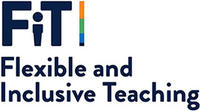Imagining the Future of Digital Education
Read Eva Orszaghova's highly commended submission
In Hilary term 2022, students at all levels of study at Oxford were invited to enter the Imagining the Future of Digital Education writing competition.
Entrants submitted news articles telling fictitious stories of the future of digital learning at Oxford, with all submissions helping to inform the University’s new Digital Education Strategy.
Eva Orszaghova's entry was highly commended by the judging panel. Here is her submission. You can also view all competition winners.
Imagining the Future of Digital Education
A blog post by Eva Orszaghova
6 June 2025
There is no doubt that the year 2020 started a wide-scale transformation of the whole world. Everybody was forced to take a step back and tackle the situation that the pandemic caused. The alternative way to stay in touch, while bypassing physical proximity, was to switch online. Universities took on this challenge and tackled it their own way to make sure students could access learning materials and keep educating themselves for the future.
This article takes you on the five-year journey that I have seen the education industry go through as a result of trying to reinvent itself amidst the pandemic, through the lens of my own experiences taking a career break to broaden my horizons, studying as a master’s student at the University of Oxford and talking to my friends who stayed on at Oxford after I left.
It all started in 2019, when I was submitting my application for Master’s degree, imaging the great Oxford experience. I wanted to immerse myself in all the college events, academic talks and discussions, in-person lectures and seminars that would expand my knowledge and challenge myself intellectually. I submitted the application, but once I got the offer I was stuck in indecision, caught between accepting this offer and an offer for a new role in my tech company. The decision was tricky, as the world was on hold due to pandemic. Seeing my friends who had gone through first half of the year with barely any contact time and mostly isolating themselves, I was not convinced whether giving up my new exciting job would be worth an “online master's course”. I decided to defer for a year and hoped for the health and education industries would reinvent themselves, enabling students to get back their in-person learning experience the next year.
While working in that tech company, I saw that all industries were trying to go through the digitalization their own way - there was no looking back. What was at first many failed attempts at moving online gradually turned into a successful hybrid model of working from home and using video calls to get to know my colleagues, business partners, and mangers from the comfort of my living room. That was when I realized that pandemic was causing the desperately needed acceleration in digitalization across all the industries - education included. So, I decided to give it a try and trust the University of Oxford to leverage digital opportunities to make the degree more flexible, inclusive and diverse than ever before.
It was 2021 when I finally arrived in Oxford. At first, the lectures were clunky, setting up the video recording was a long process, and the students online gave up on asking the professors to repeat the questions in class. It was a hesitant start. However, I gradually began to see the advantages of the hybrid system. When I fell ill during the first term, I was not anxious about missing a class. Instead, I was able to see that my professors were getting better at setting up the hybrid system and that my department was introducing in-class microphones that helped students ask questions we could all hear. My classmates who could not get back to the country were able to connect to the lecture in real time, too. I also realized the benefits of online exams when I became sick again during the exam period and was not able to fly back to the country, as I was able to revise the materials from the lectures, which were recorded, to help me better understand the concepts. When professors could not attend in-person lectures, they were not cancelled, but pre-recorded or delivered online. Through all these experiences, I realized the hybrid model opened more flexibility and inclusivity in times of unexpected illness, absence or conflicting meetings.

Eva wearing sub fusc and gown on her matriculation day
My story is just one of many stories that university students had to go through, highlighting the struggles and uncertainty that pandemic brought to their lives. After I graduated in 2022, the education sector among many others saw exponential growth in digitalization efforts. Talking to my friends who were pursuing their PhD and master's degrees at Oxford, it seemed that the vast datasets that University had gathered on students and the feedback they received from students and professors during the pandemic helped them tailor the application process, curriculum of the courses, and some of the interactive elements between students and universities. Interactive materials were trained using historical data to help students go through course materials at their own pace, getting rewarded with positive feedback and gradually more challenging exercises. My friends were also impressed that on top of in-person teaching, the University also began to offer more flexible pathways for students who needed special arrangements due to disabilities or busy schedules, without letting them feel excluded. New virtual set-ups enabled Oxford to enrich their guest lecture portfolios and the variety of talks available to students thanks to the remote access. Lecture rooms were upgraded with video conferencing equipment like tablets to account for students’ online presence. New digital facilitator positions helped to reduce the gap between students’ in-person and online experiences. And 24/7 chat-bots increased the ability for professors to improve their course material, as they could then tailor their lectures and seminars based on the inputs from the chat-bot.
Digitally enabled peer-to-peer collaboration took things to a whole other level for students, as they are now able to work even more easily than before with students from other countries and different backgrounds. Digital/remote working has made it so students can make friends across the world, take on more diverse perspective, and better prepare for professional life without having to fly across the globe.
We are now in 2025, and even though the pandemic is far behind us, the rapid transformation of education that resulted from it appears to have been beneficial in at least three aspects: making the student experience more inclusive, more diverse and more interactive. Given the amount of data now available on students’ lives, universities are on the path to leverage the analytics even further while keeping the fairness, accountability and transparency at the back of their mind and potentially bring AI into the equation.
The pandemic shed light on how much difference students’ socio-economic backgrounds can make in times of crisis. Undoubtedly, all students struggled in the pandemic. However, while privileged families were able to switch their working environments and their studying habits with some ease, the lack of access to libraries, study facilities and university computers made it so that students from poorer backgrounds – especially those who shared a room with multiple siblings – struggled much more to replace the security and flexibility the University campus offered them when in-person. This inevitably created divide in how much impact the pandemic had on various groups.
Yet, every challenge brings opportunities along with it. To decrease the gap between students from various socio-economic backgrounds, universities now have a stock of gadgets readily available for individual and co-working study spaces, in case students need to isolate in the future, struggle financially and/or cannot access in-person teaching easily. And so much more opportunity for improvement awaits. The effective use of mobile devices and apps such as interactive online notebooks for coding or lecture notes in ‘the cloud’ are just a few initial developments that could be taken so much further to make education more accessible to all. It will be exciting to see what comes next.

Contact us
If you have a query, please contact us at
Stay informed


